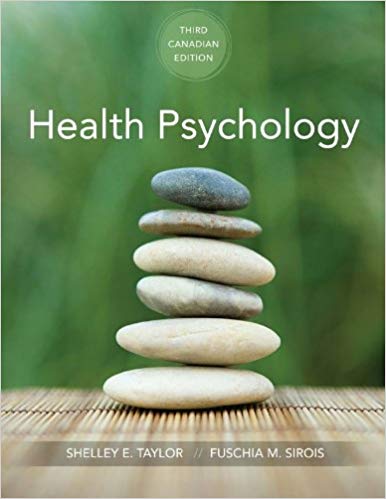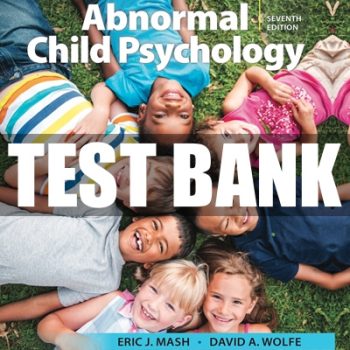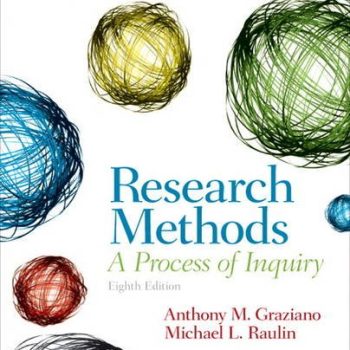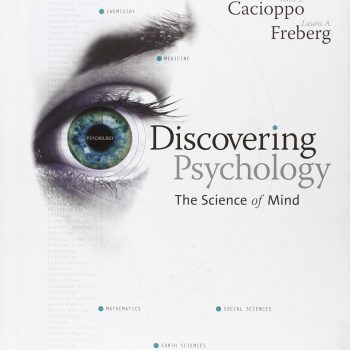Health Psychology 3rd Canadian Edition By Shelley Taylor – Test Bank
c1
Student: ___________________________________________________________________________
|
1. |
The 1948 World Health Organization’s definition of health is analogous to a state of wellness. True False |
|
2. |
Early cultures took a dualistic approach to the mind and the body. True False |
|
3. |
The ancient Greeks believed in a humoral theory of illness. True False |
|
4. |
In conversion hysteria, the patient converts psychological conflict into a symptom which then relieves the patient of anxiety. True False |
|
5. |
The biomedical model emphasizes both health and illness. True False |
|
6. |
The biopsychosocial model emphasizes the importance of an effective patient-practitioner relationship. True False |
|
7. |
The most important factor giving rise to health psychology has been the expansion of health care services. True False |
|
8. |
Morbidity may be expressed in two ways: as the number of new cases or as the total number of existing cases of an illness. True False |
|
9. |
Although health psychologists have been employed in health settings for many years, they have difficulty establishing their credibility with physicians and other health care professionals. True False |
|
10. |
Public health researchers inform policymakers about changes that would benefit communities. True False |
|
11. |
The field within psychology devoted to understanding all psychological influences on health and illness across the life span is called A. psychosomatic medicine. B. health psychology. C. medical psychology. D. epidemiology. E. immunology. |
|
12. |
A health psychologist who designs a media campaign to get people to improve their diets focuses on A. health promotion and maintenance. B. prevention and treatment of illness. C. etiology and correlations of health, illness, and dysfunction. D. the health care system and the formulation of health policy. E. the philosophy of the mind-body relationship. |
|
13. |
A health psychologist who works with people who are already ill focuses on A. health promotion and maintenance. B. prevention and treatment of illness. C. etiology and correlations of health, illness, and dysfunction. D. the health care system and the formulation of health policy. E. the philosophy of the mind-body relationship. |
|
14. |
What does etiology refer to? A. causes of illness B. a special kind of disease state C. healthy behaviour D. stress effects E. the prevalence of disease in a population |









Reviews
There are no reviews yet.